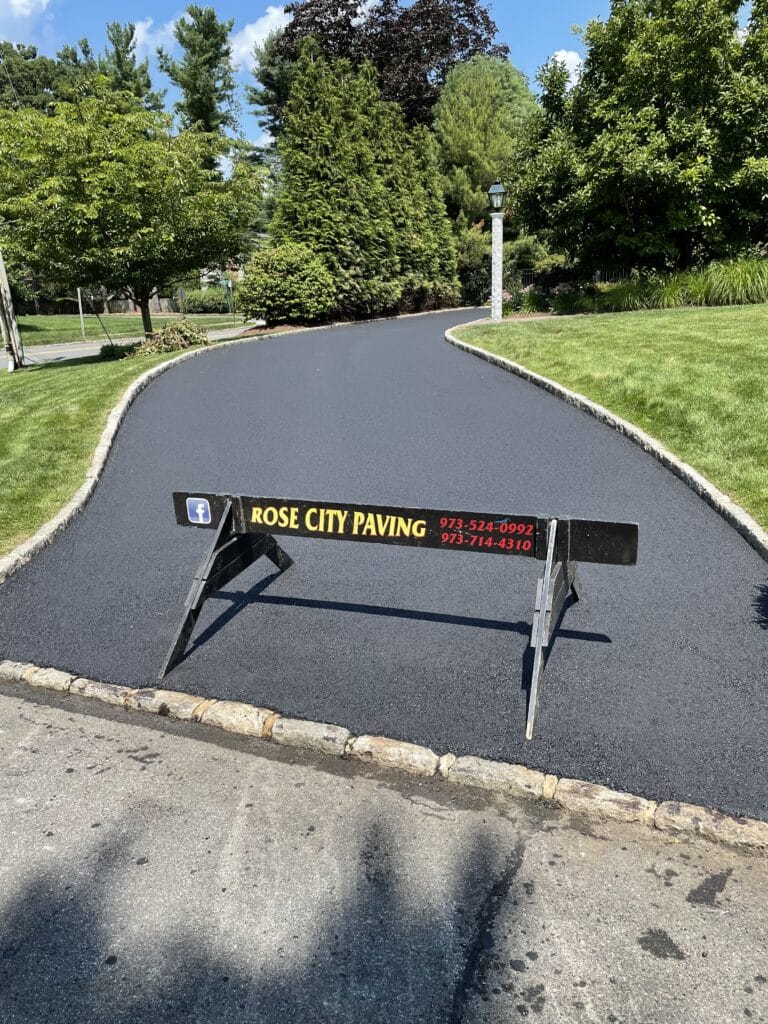Discover the Power of Commercial Parking Lot Paving and Asphalt Sealing
Discover the Power of Commercial Parking Lot Paving and Asphalt Sealing
Blog Article
Warm Mix Asphalt: A Sustainable Remedy for Pavement
Hot Mix Asphalt (HMA) has actually emerged as a leading sustainable option for pavement options, providing a myriad of ingenious modern technologies and environmental benefits. As the need for eco-friendly building and construction methods grows, checking out the nuances of HMA's sustainability can supply valuable understandings right into the future of pavement remedies.
Environmental Advantages of Warm Mix Asphalt

In Addition, Hot Mix Asphalt aids to alleviate city heat island results. Its dark shade absorbs sunlight, reducing the amount of warmth mirrored back into the ambience contrasted to lighter-colored pavements. This can lower ambient temperature levels in city areas, reducing the need for air conditioning and eventually reducing energy usage.
Furthermore, Warm Mix Asphalt adds to improved stormwater management. Its permeable nature allows water to infiltrate the sidewalk and recharge groundwater materials, minimizing drainage and the threat of flooding. These ecological advantages make Warm Mix Asphalt a sustainable selection for paving freeways and roads.
Power Performance in HMA Production
Is energy performance a vital consider the production of Hot Mix Asphalt (HMA)? Absolutely. Energy plays a substantial role in the manufacturing of HMA, impacting both price and ecological sustainability. One vital facet of power efficiency in HMA production is using warm mix asphalt (WMA) modern technologies (hot mix asphalt). WMA enables the blending and positioning of asphalt at lower temperature levels compared to traditional warm mix asphalt, causing minimized power consumption during manufacturing. This process not only decreases fuel use but also decreases greenhouse gas emissions, making it a more eco-friendly option.
In addition, improvements in plant innovations have actually caused more energy-efficient HMA manufacturing processes. Modern plants are created with attributes like recycled asphalt pavement (RAP) handling abilities, effective heater systems, and enhanced insulation, all adding to energy savings. By maximizing energy usage in HMA manufacturing, the industry can reduce its carbon impact while maintaining top notch sidewalk products. Energy efficiency is, as a result, a vital consideration in making sure the sustainability of Warm Mix Asphalt manufacturing.
Recyclability of Hot Mix Asphalt
The recyclability of Hot Mix Asphalt (HMA) is a critical aspect of its sustainability and long-term ecological effect. HMA is among one of the most recycled products in the United States, with over 100 million lots of redeemed asphalt pavement (RAP) being reused yearly in new pavement building and construction. Reusing HMA offers several environmental benefits, such as minimizing the requirement for virgin products, decreasing power intake throughout manufacturing, and lowering the quantity of waste sent out to land fills.
The process of reusing HMA includes milling the existing pavement, squashing it into smaller items, and mixing it with new accumulation and asphalt binder to produce a recycled mix. Overall, the recyclability of HMA plays a significant function in promoting lasting methods within the pavement sector.

Long-Term Efficiency of HMA
Asphalt sidewalks demonstrate longevity and durability over an extensive period, mirroring the long-term performance of Warm Mix Asphalt (HMA) Additionally, innovations in HMA technology, such as the usage of polymer-modified binders and cozy mix asphalt, have additionally boosted the sturdiness and long life of HMA pavements. By prioritizing top quality construction and maintenance methods, HMA proceeds to prove itself as a sustainable and cost-efficient option for durable pavement facilities.

HMA: Durability and Sustainability
Showing both sturdiness and sustainability, Warm Mix Asphalt (HMA) has become a foundation in the construction of resilient pavement frameworks - angled parking. HMA's durability originates from try this web-site its ability to stand up to heavy tons, harsh weather condition conditions, and high web traffic quantities, making it a reputable selection for streets, freeways, and airport runways. The make-up of HMA, which generally consists of accumulations, binder, and filler, plays an important function in improving its durability and resistance to wear and tear
Furthermore, HMA's sustainability hinges on its recyclability and energy-efficient production procedure. The capacity to reuse recovered asphalt pavement (RAP) in new HMA mixtures reduces the need for virgin products and reduces the ecological effect of pavement construction and upkeep. Additionally, the energy effectiveness of creating HMA exists in its reduced blending temperatures contrasted to other pavement materials, resulting in minimized power intake and greenhouse gas exhausts.
Conclusion
In conclusion, warm mix asphalt (HMA) uses a sustainable solution for sidewalk with its ecologically friendly features. HMA's recyclability, energy efficiency in manufacturing, and long-lasting resilience make it an eco-friendly option for road building and construction.
HMA is one of the most recycled products in the United States, with over 100 million loads of redeemed asphalt pavement (RAP) being recycled every year in new sidewalk construction.The procedure of reusing HMA includes grating the existing sidewalk, crushing it right into smaller items, and blending it with brand-new aggregate and asphalt binder to develop a recycled mix.Asphalt pavements show toughness and resilience over an extensive period, mirroring the long-term efficiency of Clicking Here Hot Mix Asphalt these details (HMA) Furthermore, advancements in HMA innovation, such as the usage of polymer-modified binders and warm mix asphalt, have actually further improved the durability and durability of HMA sidewalks. The ability to recycle recovered asphalt sidewalk (RAP) in brand-new HMA combinations decreases the need for virgin products and reduces the ecological influence of pavement building and upkeep.
Report this page